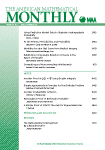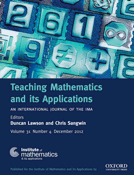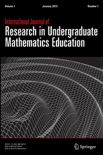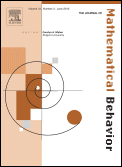
Educational Studies in Mathematics
Scope & Guideline
Unveiling New Horizons in Educational Mathematics
Introduction
Aims and Scopes
- Mathematics Teaching and Learning Practices:
Explores effective strategies and pedagogies for teaching mathematics at different educational levels, emphasizing classroom dynamics and student engagement. - Equity and Inclusion in Mathematics Education:
Investigates issues of equity, diversity, and inclusion within mathematics education, addressing how social factors impact learning experiences and outcomes. - Mathematics Curriculum Development:
Focuses on curricular innovations and reforms, analyzing how curriculum shapes the teaching and learning of mathematics in various contexts. - Technological Integration in Mathematics Education:
Examines the role of technology in mathematics teaching and learning, including the use of digital tools and resources to enhance educational practices. - Cognitive and Affective Dimensions of Learning:
Studies the cognitive processes involved in mathematical thinking and problem-solving, as well as the emotional aspects that influence student learning. - Research Methodologies in Mathematics Education:
Encourages diverse research methodologies, including qualitative, quantitative, and mixed methods, to deepen the understanding of mathematics education phenomena.
Trending and Emerging
- Equity and Social Justice in Mathematics Education:
There is a marked increase in research addressing equity, social justice, and the experiences of marginalized groups in mathematics education, reflecting a broader societal emphasis on inclusivity. - Interdisciplinary Approaches:
Emerging themes highlight the integration of mathematics education with other disciplines, such as history, culture, and the arts, fostering a more holistic understanding of mathematics in various contexts. - Impact of COVID-19 on Mathematics Education:
The pandemic has catalyzed a surge in research exploring the effects of remote learning, digital instruction, and the challenges faced by educators and students during this unprecedented time. - Mathematics Identity Development:
Research focusing on the formation of mathematics identities among students, particularly in relation to their cultural and social backgrounds, is gaining prominence. - Innovative Technological Practices:
The exploration of new technologies and digital tools in mathematics teaching and learning is increasingly prevalent, with studies examining their effectiveness in enhancing student engagement and understanding.
Declining or Waning
- Traditional Assessment Methods:
Research related to conventional assessment techniques in mathematics education appears to be declining as the focus shifts towards formative assessments and innovative evaluation strategies. - Purely Theoretical Approaches:
There is a noticeable decrease in studies that focus solely on theoretical constructs without practical implications, as the journal increasingly emphasizes applied research and real-world applications. - Mathematics Education in Isolated Contexts:
The exploration of mathematics education in isolated or homogeneous contexts is less common, with a growing focus on cross-cultural comparisons and global perspectives. - Teacher-Centric Models of Instruction:
Research centered exclusively on teacher-led instruction is waning, as collaborative and student-centered learning approaches gain traction in the literature. - Standardized Testing Critiques:
While critiques of standardized testing remain relevant, the volume of publications addressing this theme has diminished, possibly due to a shift towards broader discussions of equity and inclusion.
Similar Journals

AMERICAN MATHEMATICAL MONTHLY
Advancing Pedagogy and Research in MathematicsAMERICAN MATHEMATICAL MONTHLY, published by Taylor & Francis Inc, is a prominent journal in the field of mathematics, recognized for its contribution to the dissemination of mathematical knowledge and pedagogy. With its ISSN 0002-9890 and E-ISSN 1930-0972, this journal has been a cornerstone for mathematicians since its inception, continuing to provide scholarly articles, educational materials, and insights into contemporary mathematical research. Although it follows a subscription model without Open Access options, its Q2 ranking in the Mathematics (miscellaneous) category reflects its reputable standing among peers, emphasized by its Scopus rank in the 22nd percentile. Based in the United States at 530 Walnut Street, Ste 850, Philadelphia, PA 19106, the journal spans topics that cater to both advanced researchers and aspiring students, facilitating an engaging dialogue within the mathematical community.

Teaching Mathematics and Its Applications
Shaping the Future of Mathematics Education WorldwideTeaching Mathematics and Its Applications is a prestigious interdisciplinary journal published by Oxford University Press, focusing on innovative pedagogical approaches and research in the fields of mathematics and education. With an impressive impact factor and ranking in the top quartile (Q1) for both education and miscellaneous mathematics categories, the journal is an essential resource for researchers, educators, and practitioners aiming to enhance mathematics teaching and learning. Since its inception in 1982, the journal has provided a platform for the dissemination of cutting-edge research, reviews, and case studies that foster the advancement of mathematical literacy and application across diverse educational settings. While the journal is not open access, its wide reach and the significant Scopus rankings—86th in General Mathematics and 688th in Education—reaffirm its status as a leading authority in the discipline. By emphasizing both theoretical perspectives and practical applications, Teaching Mathematics and Its Applications plays a vital role in shaping the future of mathematics education worldwide.

Journal of Mathematics Teacher Education
Exploring New Frontiers in Mathematics InstructionJournal of Mathematics Teacher Education, published by SPRINGER, serves as a pivotal platform for scholarly communication in the fields of Education and Mathematics. With a distinguished Q1 ranking in both disciplines and exceptional Scopus rankings—placing it in the top 94th percentile for Mathematics and the 84th percentile for Education—the journal is dedicated to advancing research and practice in mathematics education from a global perspective. Established in 2005 and converging towards 2024, it invites contributions that investigate innovative teaching strategies, curriculum development, and teacher education methodologies. Although the journal does not offer Open Access, its rich collection of empirical studies, reviews, and theoretical articles provides invaluable resources for educators, researchers, and students aiming to elevate the quality of mathematics instruction. Situated in Dordrecht, Netherlands, the Journal of Mathematics Teacher Education remains a significant asset to the academic community, fostering discussions that drive progress and enhance student learning experiences.

International Journal of Research in Undergraduate Mathematics Education
Innovating Teaching Strategies in Mathematics EducationInternational Journal of Research in Undergraduate Mathematics Education is a premier peer-reviewed journal published by Springer International Publishing AG, dedicated to the advancement of research and scholarship in the field of undergraduate mathematics education. With an ISSN of 2198-9745 and an E-ISSN of 2198-9753, this journal serves as a crucial platform for educators, researchers, and policymakers to disseminate innovative findings and pedagogical strategies that enhance mathematical understanding among undergraduates. Positioned in the esteemed Q2 ranking in both the Education and Mathematics (miscellaneous) categories for 2023, it boasts a respectable Scopus ranking—17th out of 90 in Mathematics and 578th out of 1543 in Social Sciences (Education), placing it in the top percentiles of both fields. The open access format ensures that research is widely accessible, fostering collaboration and knowledge-sharing across the global academic community. Since its inception in 2016, the journal has been committed to publishing high-quality research addressing various dimensions of mathematics education, making it an essential resource for those engaged in enhancing educational practices and outcomes.

International Journal of Mathematical Education in Science and Technology
Transforming Mathematical Education for a Technological EraThe International Journal of Mathematical Education in Science and Technology, published by TAYLOR & FRANCIS LTD, is a leading academic journal dedicated to the interdisciplinary field of mathematical education, emphasizing the integration of science and technology. With an ISSN of 0020-739X and E-ISSN 1464-5211, the journal serves as a vital resource for researchers, educators, and practitioners seeking innovative methodologies and pedagogical frameworks in mathematics education. As of 2023, it has achieved a prestigious standing in Q2 quartiles across three categories: Applied Mathematics, Education, and Mathematics (miscellaneous), with notable rankings in Scopus, including 16th in Mathematics and 486th in Social Sciences Education. The journal, which has been converging its research and findings since 1970 and will continue to do so until 2024, is not available as an open access publication, but offers a wealth of insights for those committed to enhancing mathematical understanding in various educational contexts. Its emphasis on cutting-edge research makes it a crucial conduit for advancements in both theoretical and practical aspects of mathematics education.

International Electronic Journal of Mathematics Education
Bridging Theory and Practice in Mathematics EducationInternational Electronic Journal of Mathematics Education (IEJME) is a premier platform dedicated to advancing the field of mathematics education through rigorous research and innovation. Published by MODESTUM LTD, this interdisciplinary journal focuses on the pedagogical, theoretical, and empirical aspects of mathematics education, facilitating a deep understanding of teaching practices, learning methods, and curriculum development. With its commitment to open access, IEJME ensures that research findings are accessible to a global audience, fostering collaborative efforts among educators, researchers, and practitioners. The journal has maintained a commendable position in academic rankings, holding a Rank of #114/399 in General Mathematics and #782/1543 in Education within Scopus, highlighting its significant contribution to the scholarly community. By publishing high-quality research from 2009 to 2016 and 2021 to 2024, IEJME continues to serve as an essential resource for those invested in enhancing mathematical understanding in educational contexts, inspiring future generations of mathematicians and educators.

International Journal for Technology in Mathematics Education
Empowering educators with cutting-edge technological insights.International Journal for Technology in Mathematics Education (ISSN: 1744-2710, E-ISSN: 2045-2519) is a pioneering platform published by Research Information Ltd that focuses on the interplay between technology and mathematics education. Established to bridge the gap between pedagogical practices and technological advancements, this journal connects researchers, educators, and practitioners in a bid to enhance teaching methodologies and optimize learning outcomes in mathematics. Although its coverage in Scopus was discontinued after 2020, it continues to be a vital resource for those interested in the integration of technology into educational settings. With its significant emphasis on interdisciplinary approaches, the journal has garnered attention in the realms of social sciences and computer science, with Scopus rankings reflecting its niche contributions. This journal is crucial for professionals aiming to explore innovative techniques in mathematics education, making it an invaluable addition to any academic library.

Journal of Mathematical Behavior
Fostering Effective Learning in MathematicsThe Journal of Mathematical Behavior, published by ELSEVIER SCIENCE INC, is a premier interdisciplinary journal dedicated to the exploration of mathematical thinking, learning, and education. With a strong history of publication since 1994 and converging towards 2024, this journal offers vital insights and innovative research in the fields of Applied Mathematics, Applied Psychology, and Education, holding notable rankings in various categories, including Q1 in Education and Q2 in both Applied Mathematics and Psychology as of 2023. The journal is positioned favorably in Scopus rankings, highlighting its impact in the realms of Mathematics and Education. It serves as a critical platform for researchers, educators, and practitioners aiming to enhance pedagogical strategies and foster effective mathematical understanding. Although it does not offer open access, the journal remains a cornerstone for advancing knowledge and dialogue within the mathematical education community,** making it an essential resource for anyone invested in the complexities and applications of mathematical behavior.

Edma 0-6-Educacion Matematica en la Infancia
Pioneering Research for Young Mathematicians.Edma 0-6-Educacion Matematica en la Infancia is an esteemed academic journal dedicated to exploring the methodologies and practices of mathematics education for children aged 0 to 6 years. Published by the UNIV COMPLUTENSE MADRID, GRUPO INVESTIGACION & DIDACTICA MATEMATICAS, this journal serves as a platform for researchers, educators, and practitioners who aim to enhance early childhood mathematics education through innovative insights and comprehensive studies. While its impact factor is yet to be established, the journal is poised to contribute significantly to the field, promoting an open dialogue on instructional strategies, curriculum development, and pedagogical frameworks. The journal is accessible through its Open Access policy, ensuring that valuable research reaches a wider audience without barriers. With the growing recognition of the importance of early mathematics education, Edma 0-6 aims to be a cornerstone resource, empowering stakeholders to shape meaningful learning experiences for young learners. Submissions and inquiries can be directed to the Department of Mathematics Didactics at the Universidad Complutense de Madrid, located in Madrid, Spain.

REDIMAT-Revista de Investigacion en Didactica de las Matematicas
Empowering Educators through Innovative DidacticsREDIMAT-Revista de Investigacion en Didactica de las Matematicas, published by HIPATIA PRESS, is a leading open-access journal dedicated to advancing research in mathematics education, particularly focusing on didactic methodologies and pedagogical innovations. Since its inception in 2012, the journal has fostered an inclusive platform for academics, educators, and practitioners to disseminate their findings and insights, significantly contributing to the field of mathematics education. With an ISSN of 2014-3621, REDIMAT aims to promote high-quality research and collaboration across diverse educational contexts. The journal not only emphasizes empirical studies but also theoretical developments and practical applications that enhance teaching and learning of mathematics worldwide. By providing a valuable resource for researchers, professionals, and students alike, REDIMAT plays a pivotal role in shaping the future of mathematics education research.